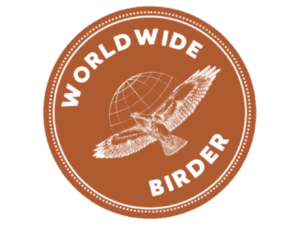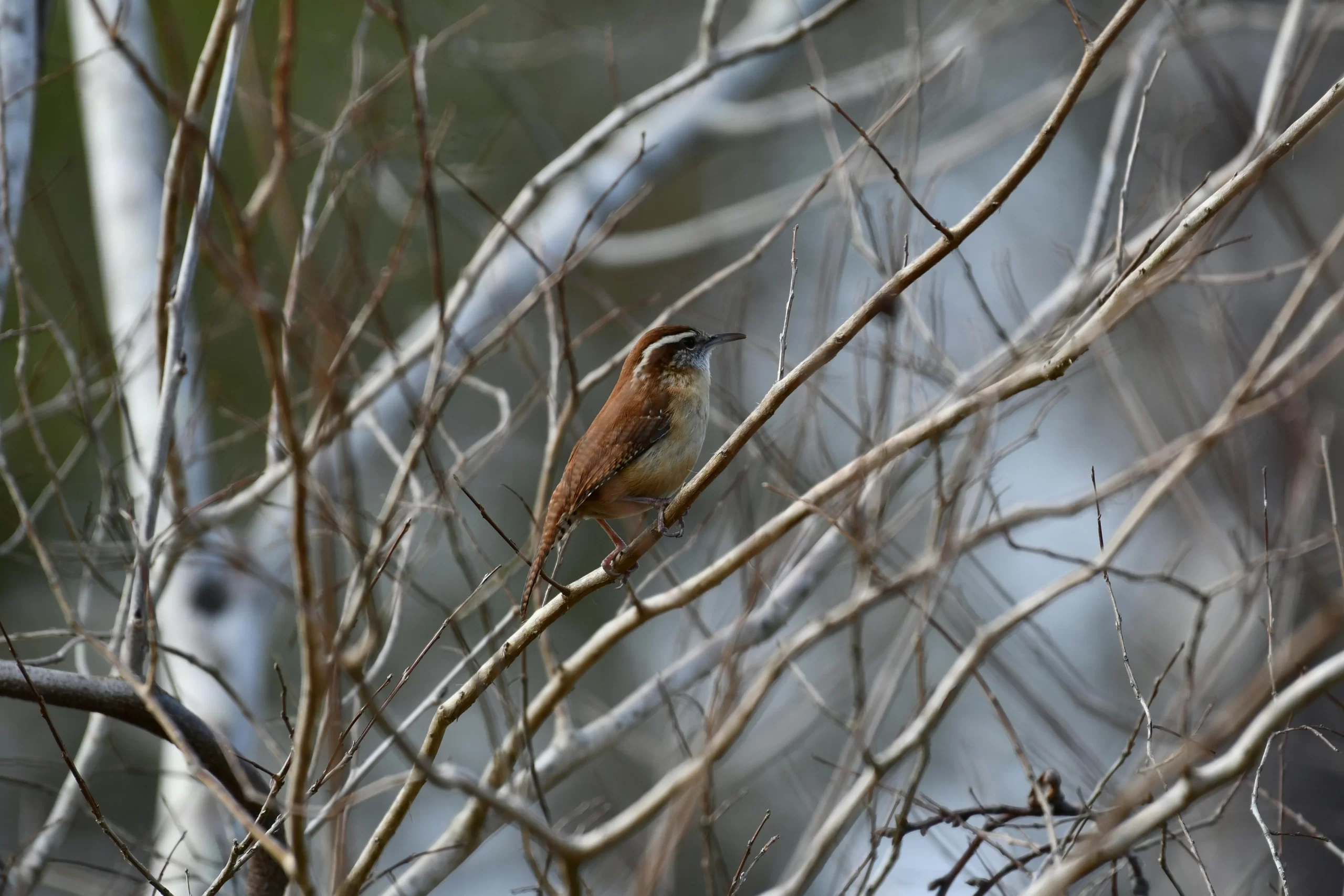No matter where you live in the United States, it is likely that at least one wren species will inhabit your backyard. Many have experience with these tiny backyard birds, and some are very interested in the prospect of feeding wrens. However, it is important to understand a wren diet before attempting to feed wrens. Therefore, what do wrens eat?
Well, I’ll be going in-depth on wren diets within this article to help you be an informed wren food provider. I’ll discuss foods that wrens like to eat while also warning you of some foods to avoid feeding wrens. So, what do wren birds eat? Let’s find out!
Table of Contents
What Do Wrens Eat?
There are 10 species of expected wren species that inhabit the United States, and there is quite a bit of variation among these types of wrens. Indeed, species such as Carolina Wrens and House Wrens can often seem quite bold despite their tiny size, while Winter Wrens and Sedge Wrens are much more secretive. Despite these differences in behavior, wren diets are rather consistent. So, what do wrens eat?
Wrens are a group of birds that are largely insectivorous, with small invertebrates making up the vast majority of insects that are consumed by these creatures. Wrens hunt by actively skulking through their habitat and pouncing on insect prey once they find it. Unlike swallows, wrens rarely invest their energy into flying after their prey.
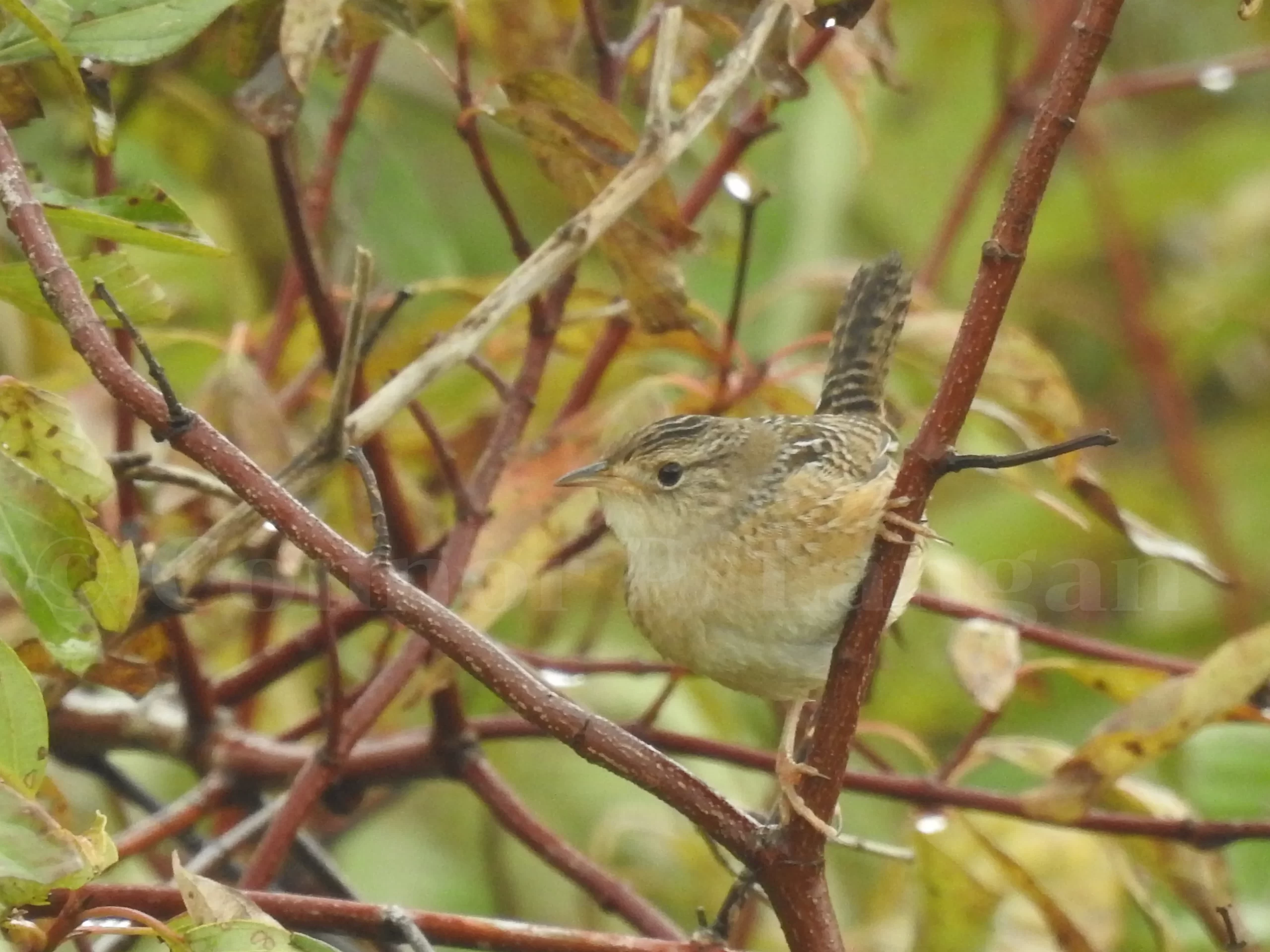
Although most wrens rarely depart from their usual diet of insects, species such as Carolina Wrens are known to have more adaptable diets. So, what do wrens eat when they’re not eating insects? Well, berries and other types of fruit may occasionally be eaten by some wrens. Indeed, juniper berries, raspberries, and elderberries are eaten by some wrens.
Eating berries is one thing, but how about seeds – do wrens eat seeds?
Do Wrens Eat Seeds?
Eating insects and berries is one thing, but those interested in possibly feeding wrens will want to know if wrens eat seeds, as seeds are commonly offered at bird feeders. So, would wrens consider visiting a bird feeder – do wrens eat seeds?
No, seeds are not a typical component of a wren diet, with most wrens avoiding seeds altogether. However, species such as Carolina Wrens and Bewick’s Wrens may join birds like sparrows at bird feeders and consume seeds. These two species are more likely to resort to eating seeds because the northern portions of their range often don’t support many insects in the winter. Thus, they occasionally must turn to seeds for sustenance.
What Do Carolina Wrens Eat?
Carolina Wrens have already been mentioned several times in this article. Indeed, these large wrens are well known for their tendencies to frequent backyards and sing their melodic songs throughout spring and summer. They are a very enjoyable bird to have around, so many are keen on learning about a Carolina Wren diet so they can entice them to stay. So, what do Carolina Wrens eat?
Carolina Wrens perhaps have the most well-rounded diet of any United States wren, but insects still are their preferred food. Caterpillars, beetles, crickets, and spiders are among the most commonly eaten insects by these birds.
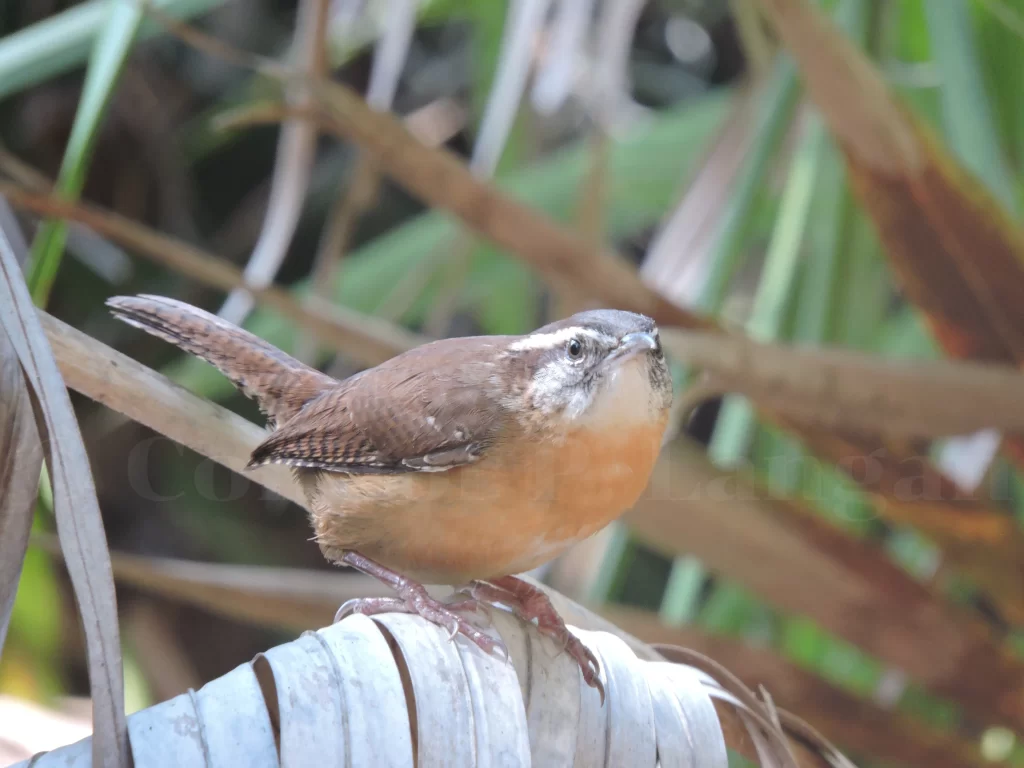
Aside from insects, Carolina Wrens are lauded as being the only wren that regularly visits bird feeders.
Now, don’t expect a Carolina Wren to visit a bird feeder during the summer, as they would much rather be eating insects during this time. However, they may stop by a bird feeder and grab some peanuts during the winter when other wren food is scarce.
Aside from peanuts, what do Carolina Wrens eat in winter? Surely it is difficult to find insects in places like Ontario during the winter. Nonetheless, Carolina Wrens still largely subsist on insects during this time of year. Remarkably, they find enough bugs to eat by scratching through leaf litter or peeking under the bark of trees.
What Do House Wrens Eat?
House Wrens are another well-known wren that is present throughout much of North America. Although they are quite tiny, House Wrens have big personalities, and they aren’t likely to get pushed around. Unsurprisingly, many are interested in having House Wrens around their properties. So, what do House Wrens eat?
Well, it seems that House Wrens are not as adventurous in their diets as Carolina Wrens, as a House Wren diet is almost exclusively insects. Ants, beetles, moths, and crickets are commonly enjoyed by House Wrens, and they rarely deviate from such food.
Therefore, don’t expect a House Wren to take any seeds from your bird feeders. Indeed, these small songbirds never have to resort to visiting bird feeders, as they migrate following the breeding season to locations that support insects throughout the year.
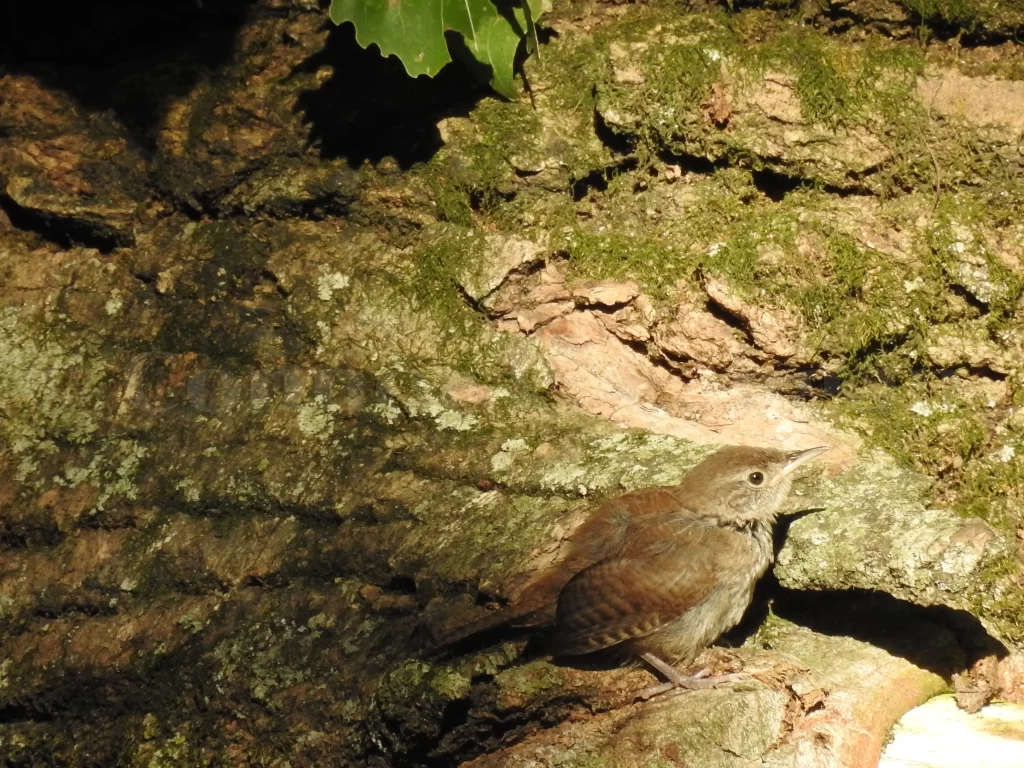
What Do Cactus Wrens Eat?
Cactus Wrens are large, charming wrens native to the American Southwest. As you can imagine, they’ve had to adapt their diets to allow them to survive in the harsh, arid climates to which they’re native. So, what do Cactus Wrens eat?
Well, insects such as grasshoppers, moths, beetles, ants, and spiders make up the majority of a Cactus Wren’s diet. However, Cactus Wrens consume the fruits and seeds of Saguaro cacti somewhat regularly. It is thought that eating these items helps provide Cactus Wrens with much-needed water – something that is often scarce within their desert homes.
Alas, Cactus Wrens do not feed from bird feeders, so birders won’t be able to attract them by offering seeds. Something that could be done to entice Cactus Wrens to visit could be setting out a bird bath, as they’ve been reported to infrequently drink from them.
What Do Wrens Eat In Summer?
Summer is the time in which wrens are the busiest, as adults will be occupied with finding enough food to feed the many mouths in their families. Fortunately, summer also happens to be the easiest time to forage for a meal, so what do wrens eat in summer?
Well, as I’ve alluded to several times in this article, wrens eat little other than insects in the summer. Considering that insects are so abundant during this time, there is no real need for wrens to feed on other food during the summer. Wrens are prolific in their consumption of insects during summer, and it is for this reason that many gardeners wish to attract them to their property by placing wren houses near their gardens.
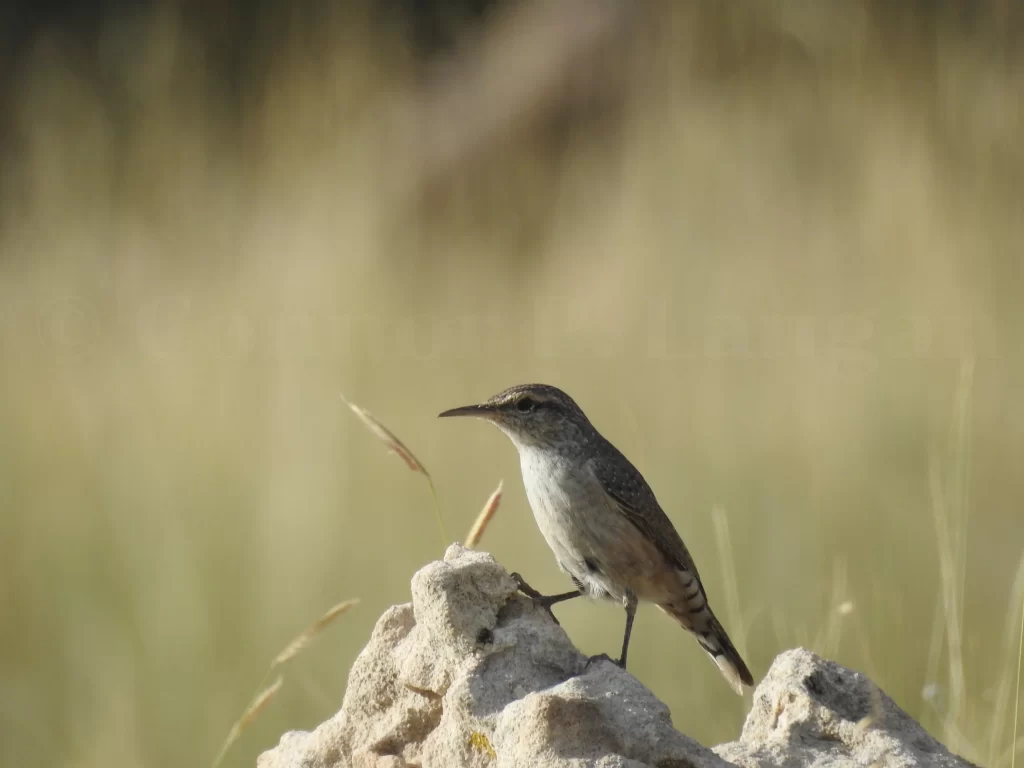
What Do Wrens Eat In Winter?
Now, winter is a much more trying time compared to summer. Although most of the types of wrens in the United States migrate to locations with plenty of insects, a few wrens overwinter in areas that receive plenty of snow. How do these wrens manage to survive these trying times – what do wrens eat in winter?
Well, recall that wrens are often still able to find insects even if a blanket of snow covers the ground. They do this by foraging in leaf litter and underneath tree bark. Therefore, wrens are often able to find enough insects to sustain themselves in winter. However, they are certainly more likely to consume berries or other plant matter during this time.
What Do Wrens Feed Their Babies?
We’ve now discussed what wrens generally eat in addition to going over the diets of three well-known wren species. Although this may explain what adult wrens eat, you may be curious if baby wrens consume different food items. So, what do wrens feed their babies?
Baby wrens are primarily fed soft-bodied insects from their parents. Therefore, spiders, caterpillars, moths, and slugs are all great food items for baby wrens. Young birds are typically fed soft-bodied insects because they’re much easier to digest and process compared to bugs like beetles that have hard exoskeletons.
